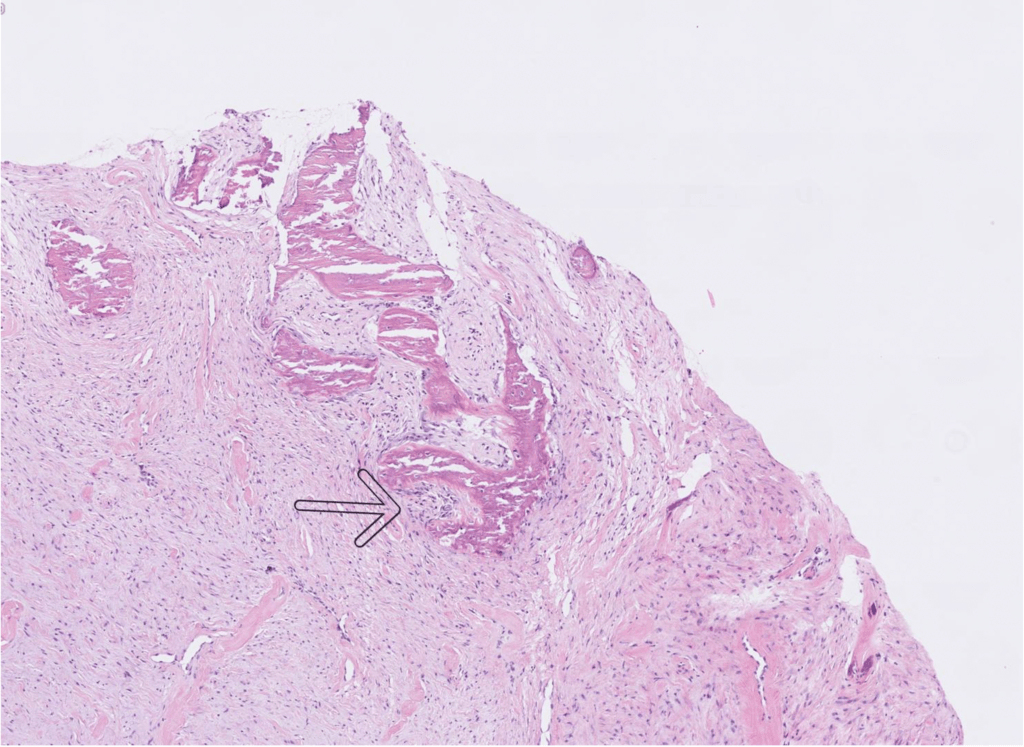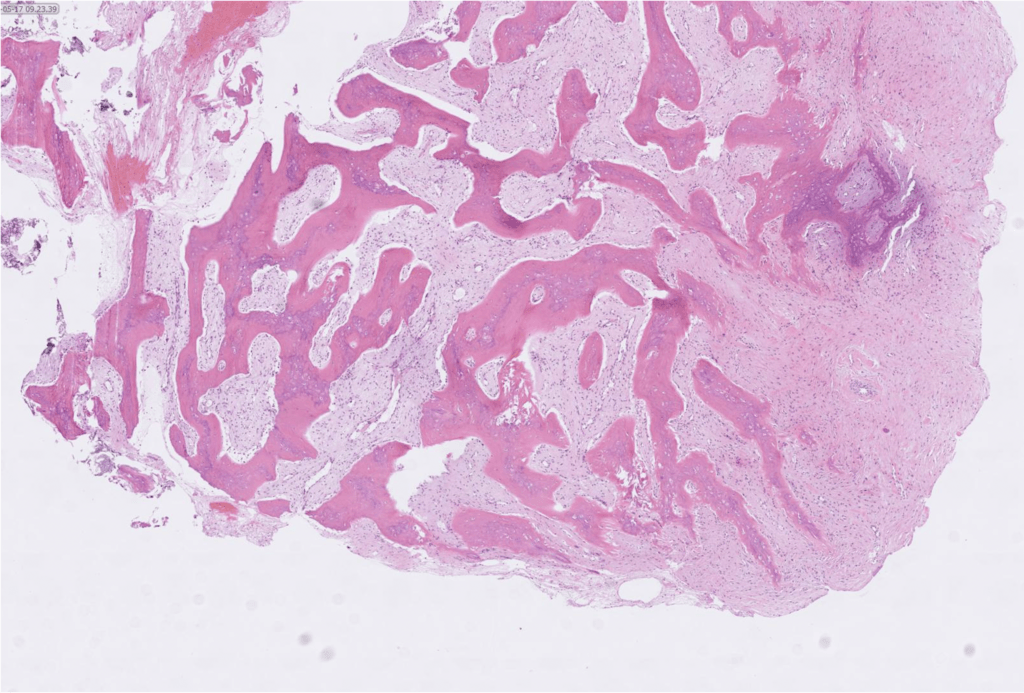Equine Juvenile Ossifying Fibroma
Will Sims, DVM
A two-year-old, male, intact Miniature Donkey had a wound on the mandible that was associated with a large firm mass. Radiographs of the lesion showed large osseous spicules emanating from the parent bone. Additionally, the submitting veterinarian commented that the mass continued to grow. A superficial edge biopsy from the surface and a deeper bone biopsy were submitted to the Texas A&M Veterinary Medical Diagnostic Laboratory (TVMDL) in Amarillo for histologic examination.
The surface of the lesion has a dense fibrobelastic stroma resembling disordered granulation with a transition area of osteoblasts lining regular spicules of woven bone. This was separated by a moderately vascularized fibrous-osseous stroma. Based on these features, clinical history, and signalment, it was determined that this was a very specific entity known as an equine juvenile ossifying fibroma. This is a benign, progressive proliferation of fibro-osseous tissue commonly observed in the rostral mandible.
Equines are most often affected up to two years of age. The exact origin of this tumor is unknown, but it is speculated that there is a developmental interference with the intramembranous ossification process of the mandible. Another pathogenesis mechanism proposed is trauma. Histopathology is the key to making the diagnosis in this case and is required to differentiate from other lesions such as osteoma, osteosarcoma, fibrous dysplasia, and fibrous osteodystrophy.
This diagnostic case highlights the importance of taking multiple samples from both the superficial and deep regions of the tumor, as the fibrous osseous interface is the most diagnostic portion of the tumor. Debulking and / or removal of portions of the mandible have been used for treatment.
Contact Dr. Will Sims, veterinary pathologist at TVMDL Amarillo, for more information about this case. For more information on sample collection and test offerings, contact TVMDL Amarillo at 1. 888.646.5624 or TVMDL College Station at 1.888.646.5623 or on the web at tvmdl.tamu.edu.

